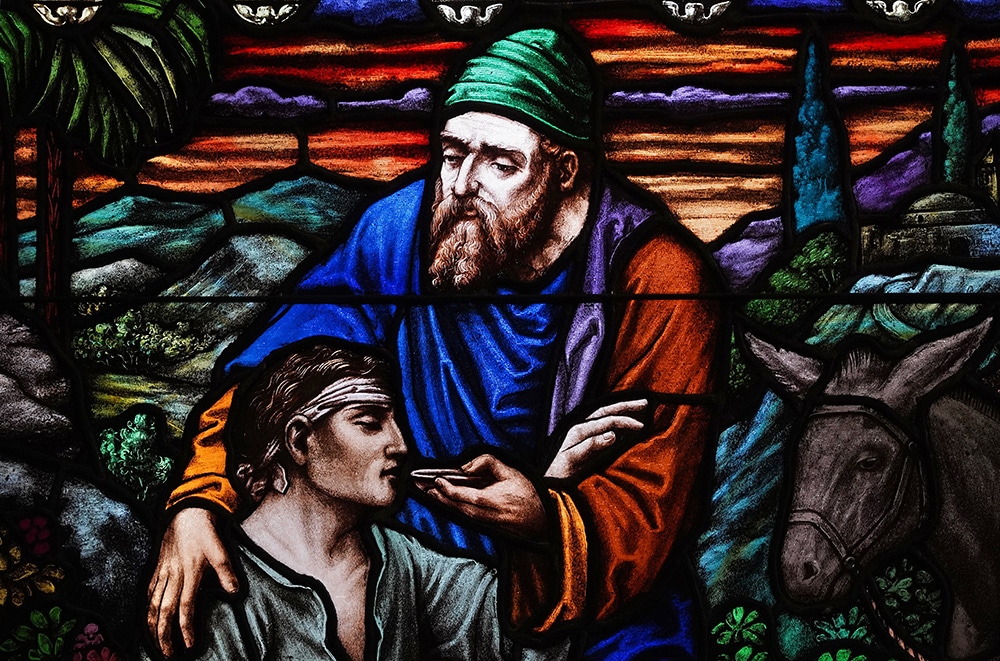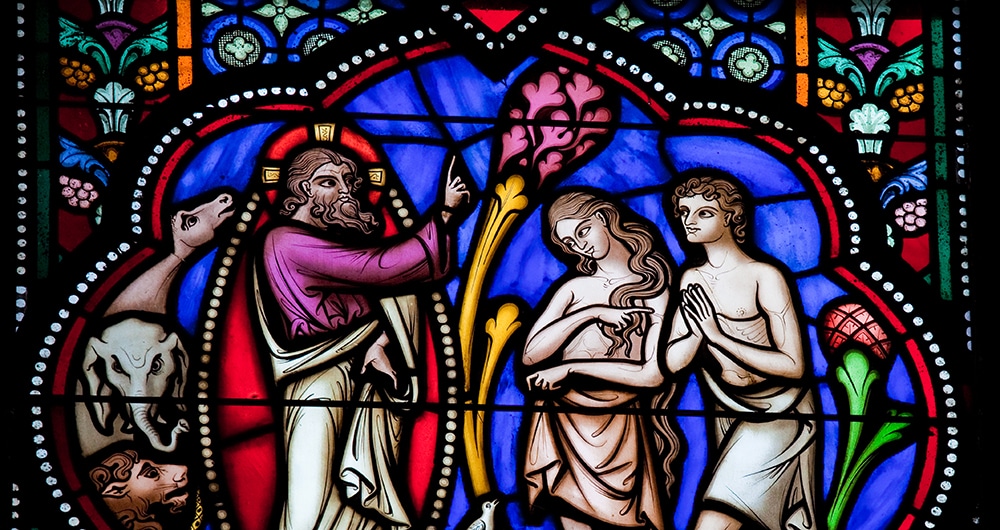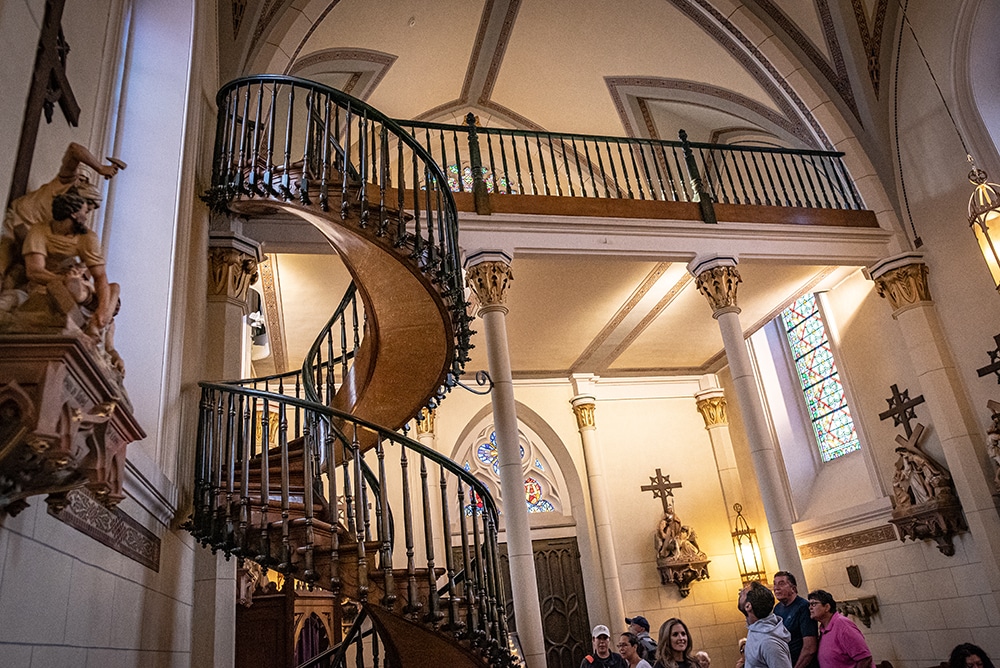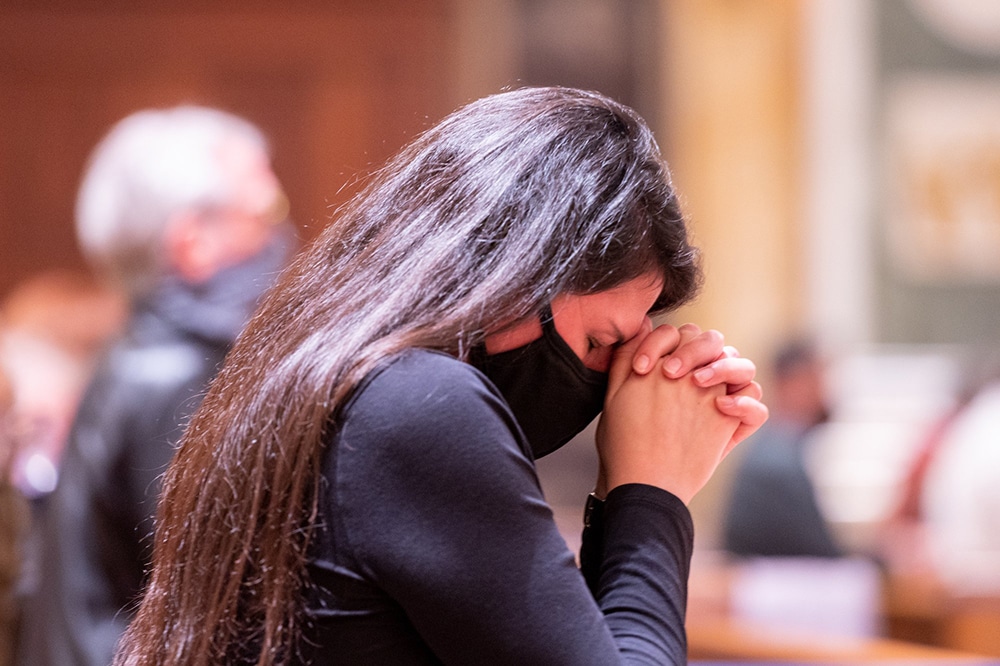Dear Friend,
A lawyer once approached Jesus and asked him what he must do to inherit eternal life. Jesus told him to love God and love his neighbor. But then the lawyer asked, “And who is my neighbor?” So Jesus told him that parable that you and I know all too well, where a traveler is mugged and left for dead in a ditch on the side of a road, only to have two religious figures pass by on the other side. It was then that a Samaritan — an outsider, despised by the people of Jesus’s time — paid attention to the dying traveler, went down into the ditch, tended to the man’s wounds, lifted him up, and took him to an inn where he could be tended to and recover. As Jesus finished the narrative, he asked the lawyer, “Which one of the three was neighbor to the injured traveler?” And the lawyer answered, “The one who showed him mercy.” Not only was that the correct answer to Jesus’s immediate question, but it was also then the answer to the lawyer’s own question from earlier: to inherit eternal life, you must love your neighbor — that is inseparable from loving God (cf. Lk 10:25-37).
What made the good Samaritan “good”? Four things. First, he paid attention to the suffering of the person he encountered. Second, he went toward rather than away from the one who was suffering. Third, he went down into the ditch to share in the injured man’s suffering. Fourth, he gave his time and his resources to meet the injured man’s real needs. When Jesus tells the lawyer to “Go and do likewise,” he is telling him to do these things.
Read more from our Letters to the Young Catholic series here.
In my previous letter to you, I talked about how to begin to love your neighbor. We begin by spending time with people, especially people who are not in our typical “in crowd,” and we learn to see them as real, distinctive, complex persons. Otherwise, we often end up thinking about people as “types” — this type of person, or that type of person. As we heard from Pietro Molla, just learning to “respect our neighbors” (as he called it) can save us from the most terrible kinds of prejudice, cruelty and hatred. Pietro helped us see how to begin to love our neighbor.
In his parable, Jesus reveals to us what actually loving our neighbors demands. It is often timely, costly, inconvenient and unglamorous. It is also what our own eternal happiness depends on. If we do not learn to love our neighbors, we will never be happy.
The deepest question
The brilliant 20th-century essayist and mystic Simone Weil had a devastatingly direct insight into the demands of the love of neighbor. She said that love of neighbor came down to one question: “What are you going through?”
She means that for me to love someone as my neighbor, I need to pay close, close attention to what is actually going on with the other person. I cannot stop with what I think is going on with the person; I cannot interpret them too quickly. I’ll be honest with you: it is a lot easier for me to do the good I want to do than to do the good that someone else needs. Why? Because I prefer doing what I like to do; I like to set the terms, even when I am doing good. That is not love of neighbor.
Love of neighbor requires being present to and caring to learn about what is actually good for the other person. I love the other person by responding to what the other person needs and what would be good for them, not what I think they need or just what I want to give them. This demands an almost unbelievable discipline: to really pay attention to another person … and then act on their good. This is directly connected to what we talked about previously about learning how to listen.
Think about the “good” Samaritan. He noticed that the traveler was injured. This seems obvious, but that means that the Samaritan was actually in the same place — on the same road — where the injured man was himself. It is rather easy to avoid places where people suffer: Don’t go downtown. Don’t go to your dormmate’s room when you hear them sobbing. Don’t go to the living room when your dad looks stressed. Don’t go near the loneliest person you know.
Being on the same road with the injured man and seeing his wounds, the Samaritan got closer. He paid attention to those wounds. He got his hands dirty. The Samaritan was in the ditch with the injured man. The injured man was no longer in his misery alone. The Samaritan was paying attention to what the man was “going through?” The Samaritan put himself in the middle of it.
As the Samaritan saw and learned about the traveler’s wounds by being close up and paying attention, he then started to act. He bandaged the wounds. He lifted the injured man out of the ditch. He took him to where he could receive better help. He paid for the man’s care. He pledged to do more if more was required. The Samaritan was committed to this stranger’s wellbeing. That’s what turned that stranger into a neighbor.
The first Samaritan
Do you know who was the first good Samaritan? Jesus. I mean that, and not in some lame, sappy, overly pious way. Jesus himself is the outsider who is “not from around here.” He was safe and sound, perfectly at peace and filled with joy with his Father in heaven. By his own will, this Son of God came to where we are and joined us in what we are “going through.”
The Son of God got into the ditch with us. He paid attention to our wounds — the wounds of sin and shame and sorrow. He got his hands dirty. He did not leave us in the ditch but lifted us out of it. He takes us himself to his Father’s household, where we will be made fully well and learn to be happy. He is committed to us who were strangers to him. He loved us concretely and that made us his neighbors.
I learned something new about this several years ago when the then-provost of my university was addressing the incoming freshman class. Dr. Tom Burish looked out on these couple thousand nervous and excited 18- and 19-year olds and told them that each of them, at some point or another, would suffer and struggle mightily during their years in college. It will seem at times like these that you are alone, that no one is there for you and no one will understand. But he told them to look behind them to their parents and guardians and families who were there with them that day. He said, “You might think that your parents do a great many things for us because they love you, and that is true. But what you may not have considered is that your parents love you because they have done a great many things for you.”
We might think that the love of neighbor begins with feelings of affection and, therefore, the good acts done for the good of others are the expressions or fruits of those affections. But Dr. Burish opened up a deeper insight: We learn to love people by doing acts of love for them. When we care for others, we take an interest in them — we invest in them. Those incoming freshmen heard two things that day. First, when you struggle, let others help you because you will actually help them learn to love you. Second, care for one another, especially those whom you see struggling because that is how you will learn to love them.
Does Jesus act for our good because he loves us, or does he love us because he has acted for our good? That question does not have an answer. He loves because he acts; he acts because he loves. What Jesus told that lawyer who was looking for eternal life is that if you want to be happy, love your neighbor. If you do not begin with love for them, act for their good and you will learn to love them. Eternal life is for neighbors.
How do you “make” neighbors? Pay attention. Go toward suffering. Share the burdens with the ones who suffer. Be generous with your time and other resources: give all you can for the other person’s wellbeing.
And at the same time, allow someone else to claim you as their neighbor. Let them see how you are suffering. Let them come close to you. Let them share your burdens. Receive the generosity of their time and resources.
In the real world, we cannot always determine whether or not another person suffers, but we can always determine whether or not another person suffers alone.
Love of neighbor is about sharing the burden. So what are you going through?
Sincerely,

Leonard J. DeLorenzo, Ph.D., works in the McGrath Institute for Church Life and teaches theology at the University of Notre Dame. His most recent book is “Into the Heart of the Father: Learning from and Giving Yourself through Christ in Prayer” (Word Among Us, $14.95).







